Audi A3 Sportback 2024 review: Softly, softly, catchy premium hatchback buyer
Watch out for the firmly sprung S line
The old adage of, “If it ain’t broke, don’t fix it,” seems to be in vogue among carmakers right now. Time was when a car’s midlife model facelift would see the showroom appeal of a given vehicle bolstered by things such as significantly altered exterior design, the addition of a load of new technology, or even the choice of a few fresh engines and transmissions.
Yet right now manufacturers are apparently loath to change much at the midpoint of their cars’ (approximate) eight-year life cycle. If you’re lucky, you might get some slightly different lights and a couple of additional paint choices. And this is much the story for the fourth-generation Audi A3.
The German company has decided to lightly airbrush its compact hatchback — called a “Sportback” in Audi-speak — as well as continuing to offer the A3 as a handsome four-door saloon. It has even revised the S3 performance version, giving it more power, a fancier rear differential and tweaked bodywork.
However, for the regular A3, clocking the changes made for what Audi is calling the “2025 model year” car (even though we’re only in April 2024 and the new A3 is on sale right now) will not be the work of a moment.
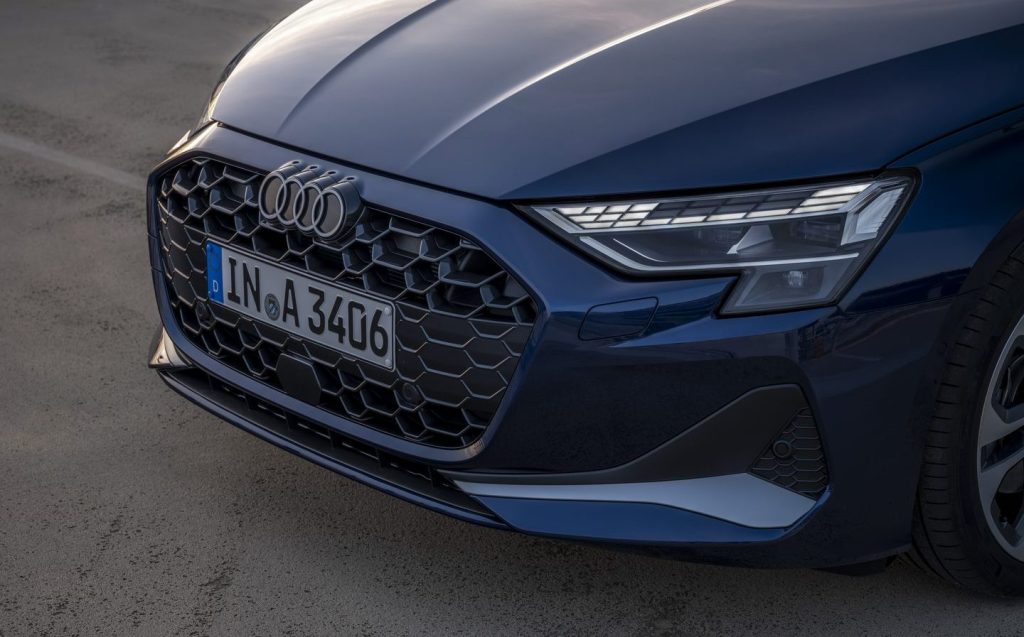
At the front, the radiator grille Audi christens the “Singleframe” is flatter, wider and now frameless — so Singleframeless, maybe? — while the bumper below has more angular air intakes and an aggressive-looking splitter.
Above this, the amended headlights have up to four configurable patterns of daytime running lamps, surely the apogee of pointless light-signature personalisation, while optional 24-pixel Matrix LEDs (which dip full beam only around objects ahead) are the ultimate level of illumination for the updated A3.
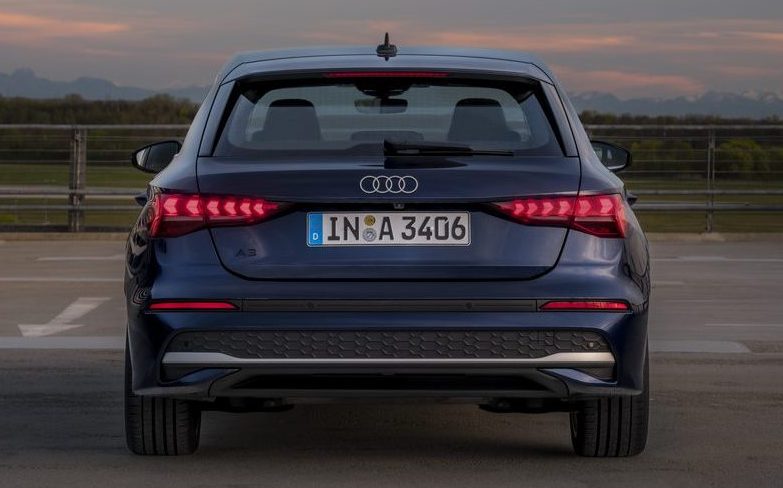
It’s a look that does give the Audi hatchback (or saloon, whatever’s yer poison) a modicum more presence, something that is enhanced at the back by a chunkier rear diffuser which is inspired by the range-topping RS 3’s.
One of the more unusual touches is the 2D badging in the pillar between the doors on the side of the car, a feature lifted from the Q8 e-tron electric SUV. This tells onlookers whether you’ve gone for an A3 or an S3, a Sportback or a Saloon, and if an A3, whether you prefer the “TFSI” petrol flavour or the unfashionable (yet likeable) “TDI” diesel.
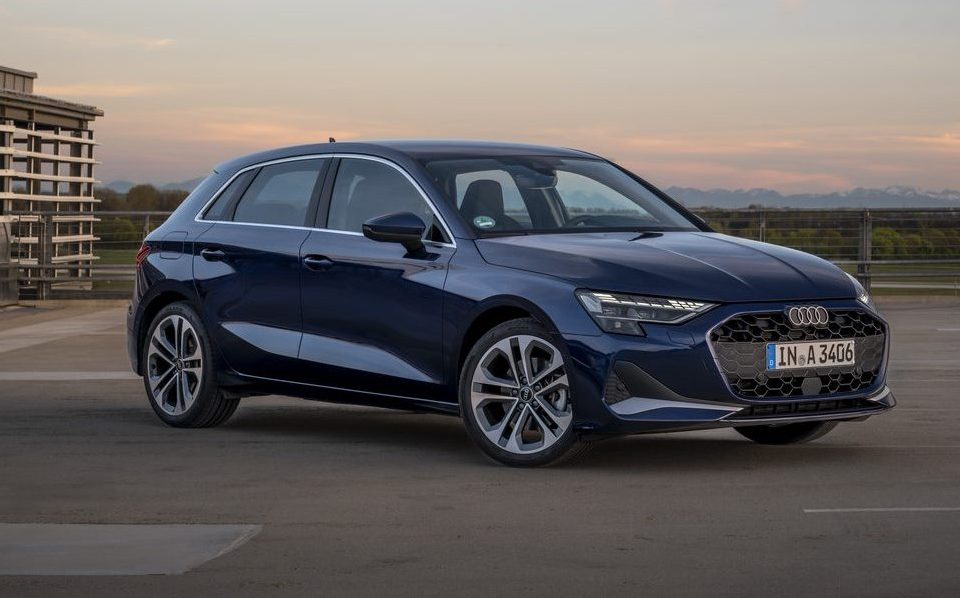
Audi is also said to want to drop the confusing two-digit nomenclature that it tried to encourage the world to embrace, relating loosely to the power outputs. However, it continues for now in brochures and configurators, meaning the 148bhp TFSI and TDI models are officially called “35”. You won’t see that number anywhere on the exterior of the car, though.
Aside from these details, the A3 continues on the outside much as before. There are new designs of alloy wheel, ranging from 17in to 19in in size, and some extra body colours including the delectable District Green. But that’s about your lot for external aesthetics.
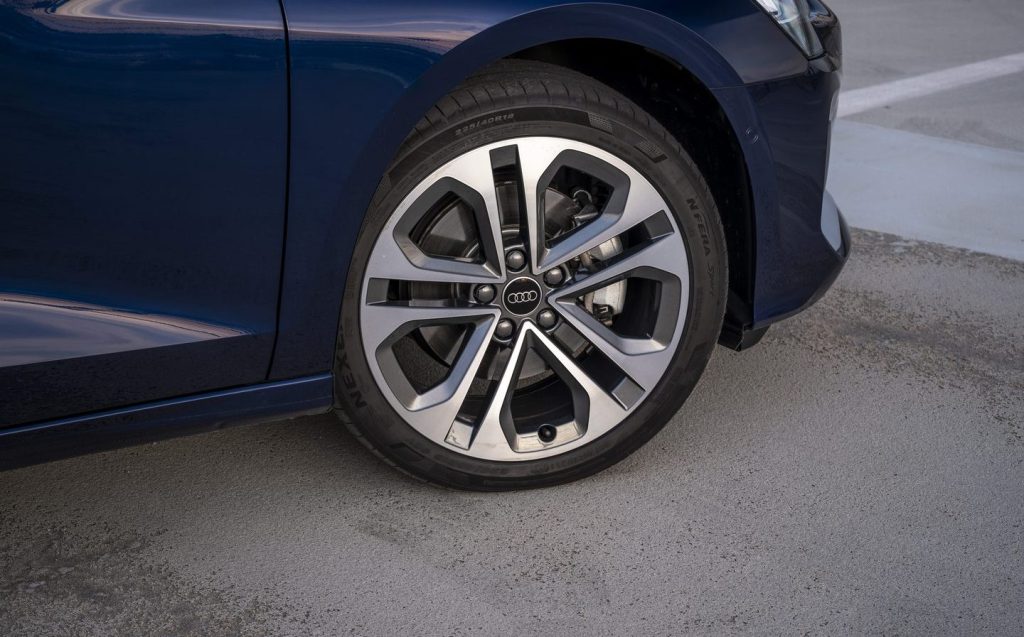
Inside, it’s also a gently-does-it approach, although as the A3 already had one of the best cabins in it6s class, this is no great hardship at all.
Physical changes are, again, minimal. The centre console is reshaped and has a new design of gear lever for the S tronic dual-clutch automatic gearbox. This is the only transmission choice in the launch line-up of refreshed compact Audis, but a manual will join the range later this year.
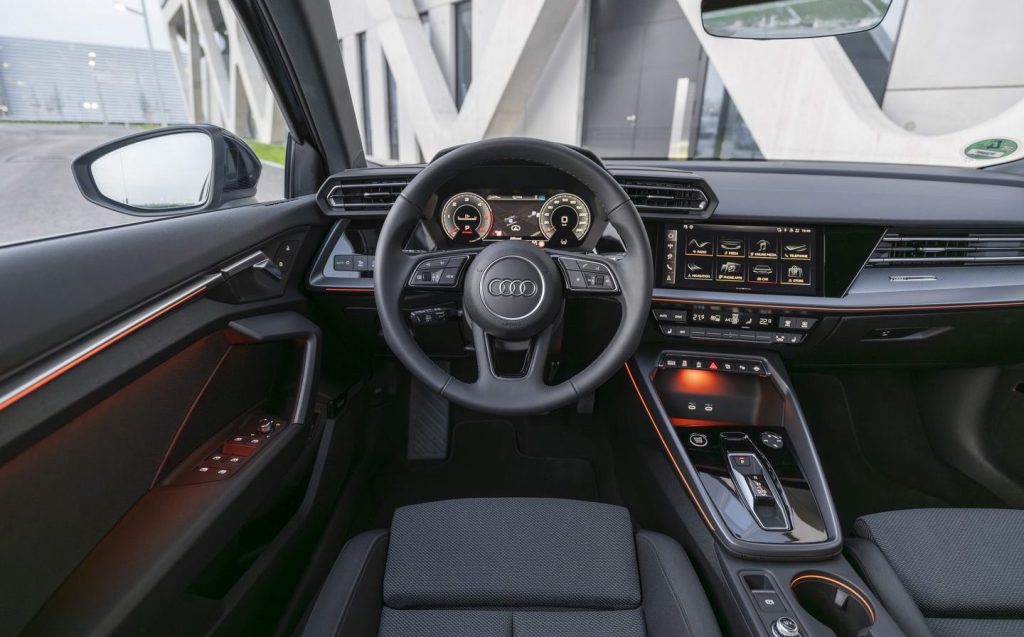
Above the transmission tunnel, wider strip-like air vents are drafted in and there’s also enhanced ambient interior lighting for a swisher feel at night, but the main updates inside the A3 relate to its standard-fit tech.
All A3 models — with UK specifications running Sport, S line and then Black Edition — now come with the flashy Audi Virtual Cockpit Plus digital instrument cluster, as well as a 10.1in touchscreen infotainment system, and loads of tech and safety features.
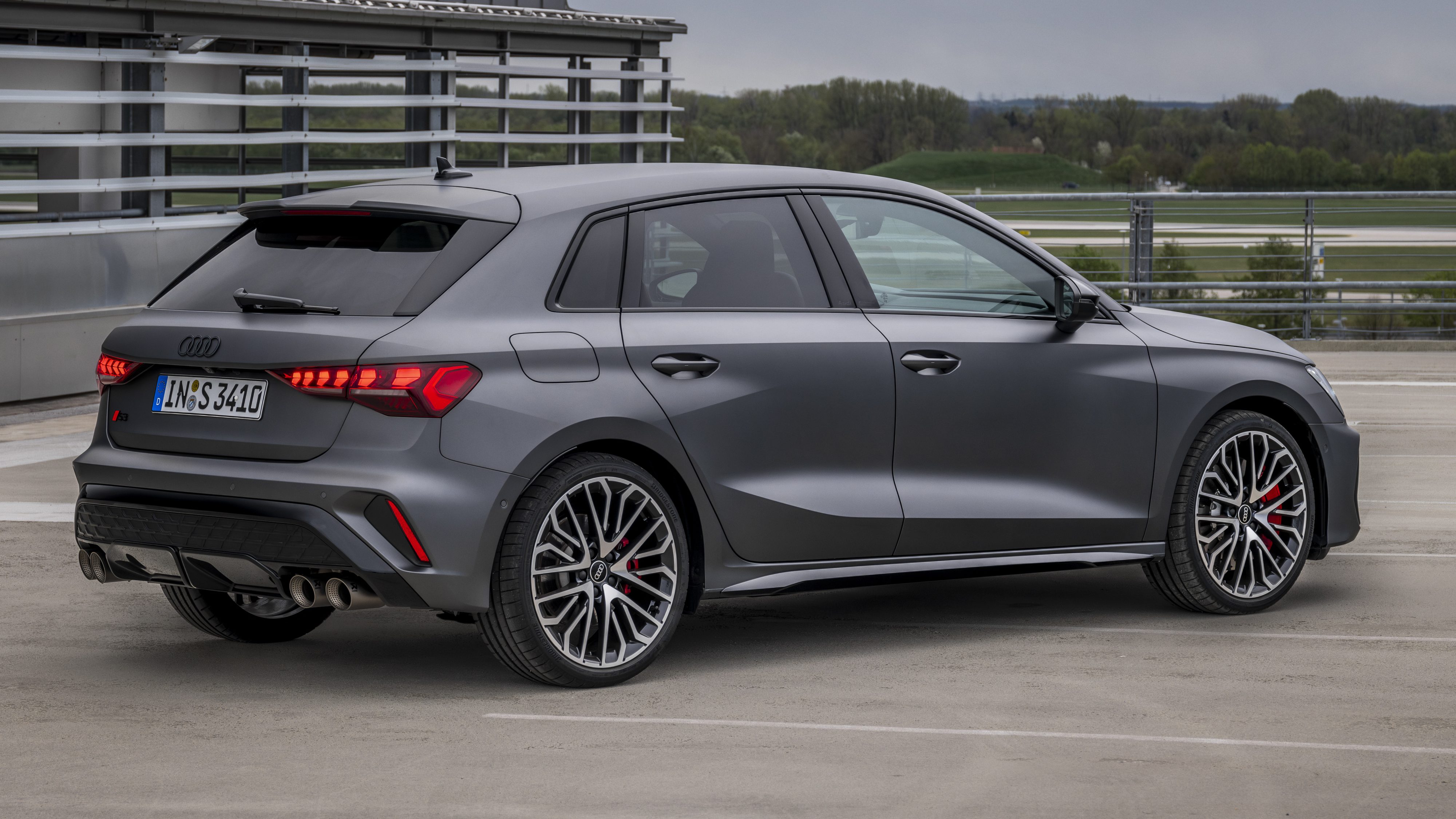
The S3, sold in Black Edition and Vorsprung, gets its own high-end level of standard equipment as befits a 300-plus bhp car with a price tag approaching £50,000.
As ever, the interior of the A3 feels top-notch and it works beautifully, especially as there are still plenty of physical buttons in the cabin, including for the in-car ventilation and climate.
The driving position is multiway adjustable and suitable for a wide spread of body types as a result, visibility out of the car is good whether you’re in a Sportback or a Saloon, and space in the back is ample without being notably generous.
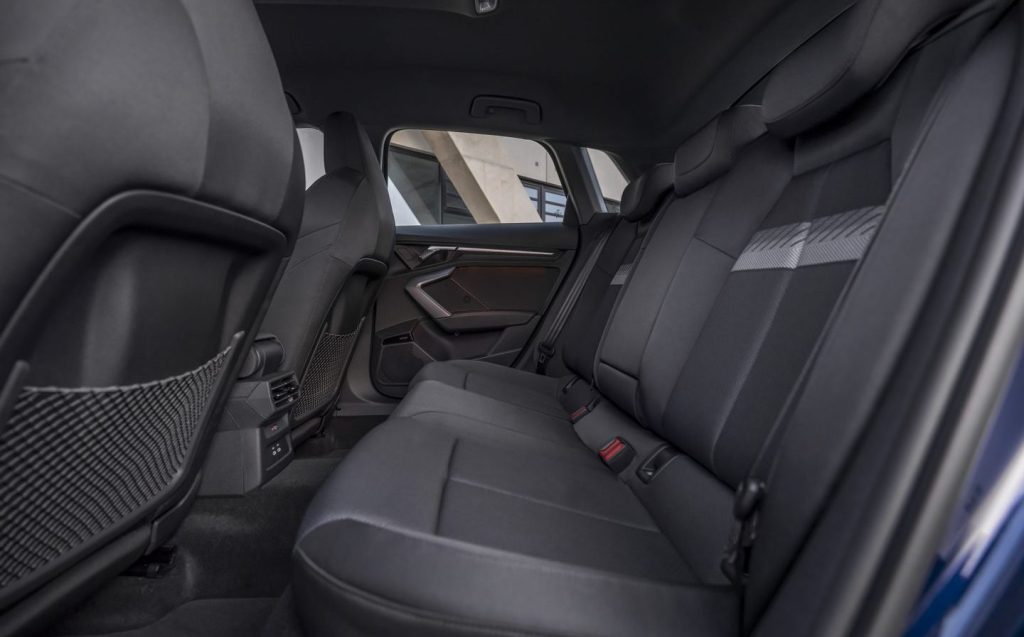
You still also get the 380-litre boot in the Sportback, with 425 litres available in the four-door A3 with all seats in use.
Yet, when it comes to drivetrains, for the regular A3s nothing has changed. The only model which has seen significant gains is the S3, up 22bhp to a peak of 328bhp — so it’s 0-62mph is now a tenth quicker at 4.7 seconds — while it has also been blessed with a new rear differential, which is better at distrubiting power between the wheels and undoubtedly enhances its handling. Previously a bit leaden in former guises, it’s a surprisingly excellent performance car these days.
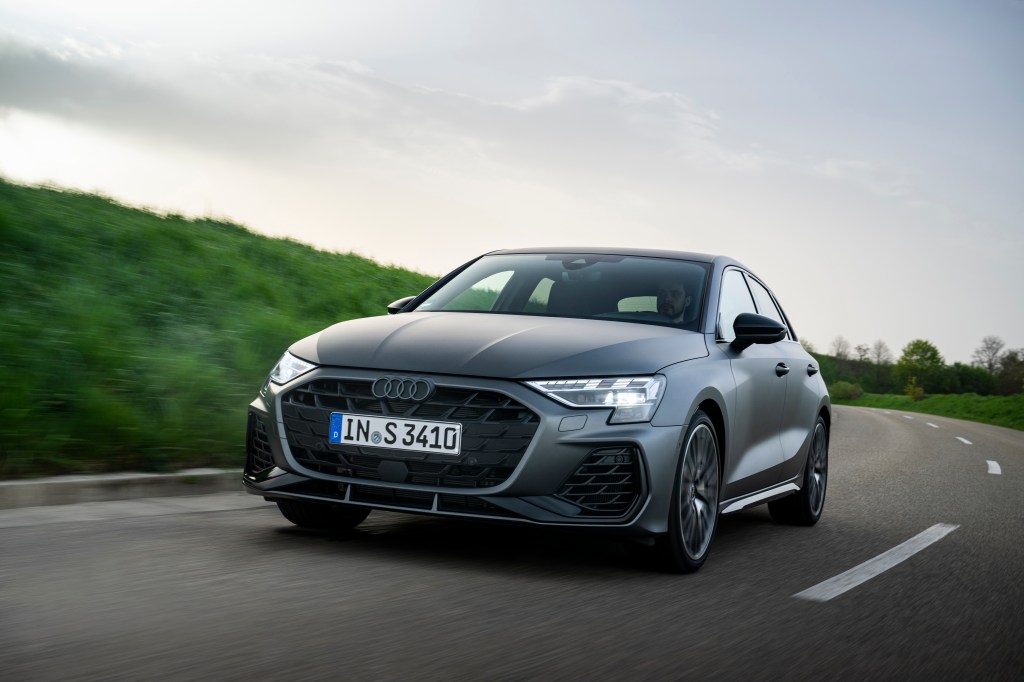
For the A3, though, your choice for now is between two turbocharged front-wheel-drive models with 148bhp and a seven-speed S tronic auto. There’s the 35 TFSI petrol, with 184 lb ft of torque (twisting force) and some 48-volt mild-hybrid tech to save fuel, and then the 35 TDI diesel, which has a lot more torque at 266 lb ft.
That said, performance is nigh-on identical in both, with all A3s running 0-62mph in 8.1 seconds and going on to a top speed of circa 140mph, while even fuel economy isn’t that far apart. Audi quotes a best of 54.3mpg for the TFSI, and 58.9mph for the TDI.
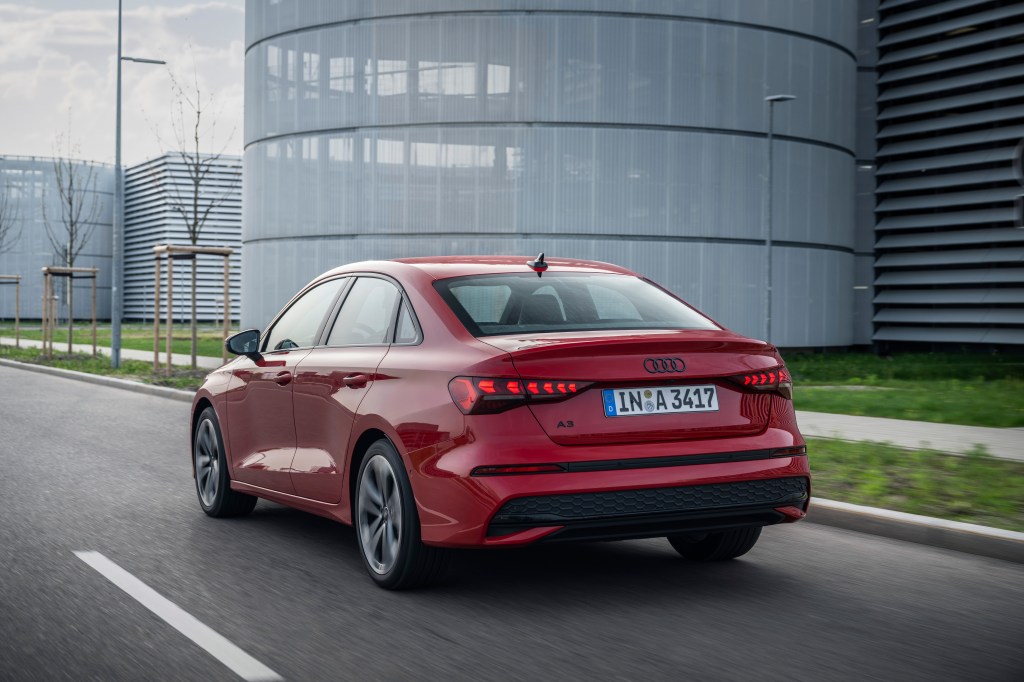
In the fullness of time (or, rather, the remainder of 2024), a lower-powered ‘30’ TFSI petrol and a robust 45 TFSI e plug-in hybrid derivative will join the range, as will the manual gearbox we mentioned earlier.
We’d also be surprised if the outrageous RS 3 performance flagship didn’t see these minor physical updates before the year is out, either, with a power bump for good measure. For now, though, buyers have 16 configurations to wade through.
Dynamically, Audi has done nothing to the regular cars in the facelift. This means that, to drive, the revised A3 is classic Audi: it’s very safe, it’s very secure… and it’s all a bit staid.
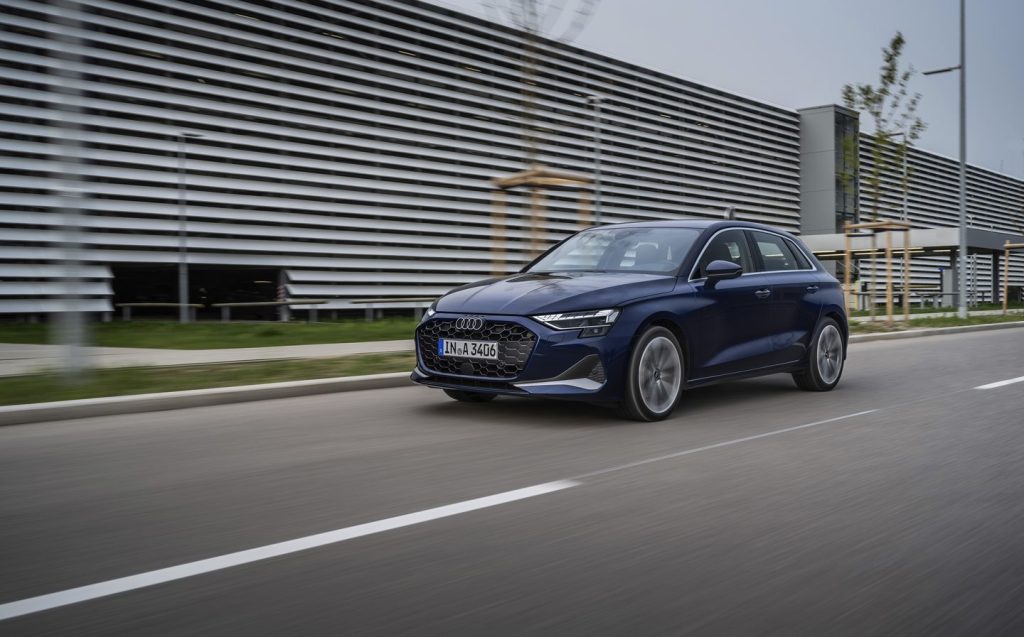
You get light, accurate but largely feel-free steering, which makes placing the car on the road an effortless yet unemotional experience. You steer, it goes, and no one thinks any the more about it.
This relates to rather inert handling. The A3 will take corners with a reasonable amount of aplomb, with little in the way of body roll or understeer — the sensation the car wants to travel straight on when you’ve turned the front wheels one way or the other — but it won’t ever put a grin on your face.
This wouldn’t be such a big problem if the A3 was immensely comfortable to travel in, and in Sport specification it certainly seemed to ride with a significant degree of grace.
But the A3 Black Edition TFSI we’ve tested here has a sportier set-up to reflect its appearance, something it shares with the S line on which it’s based, and this introduces a level of firmness to the damping that’s not entirely pleasant. It’s intransigent over larger bumps in the road, perhaps a corollary of its large 19in alloys, and it only really settles down to an amenable gait on the smoothest of road surfaces.
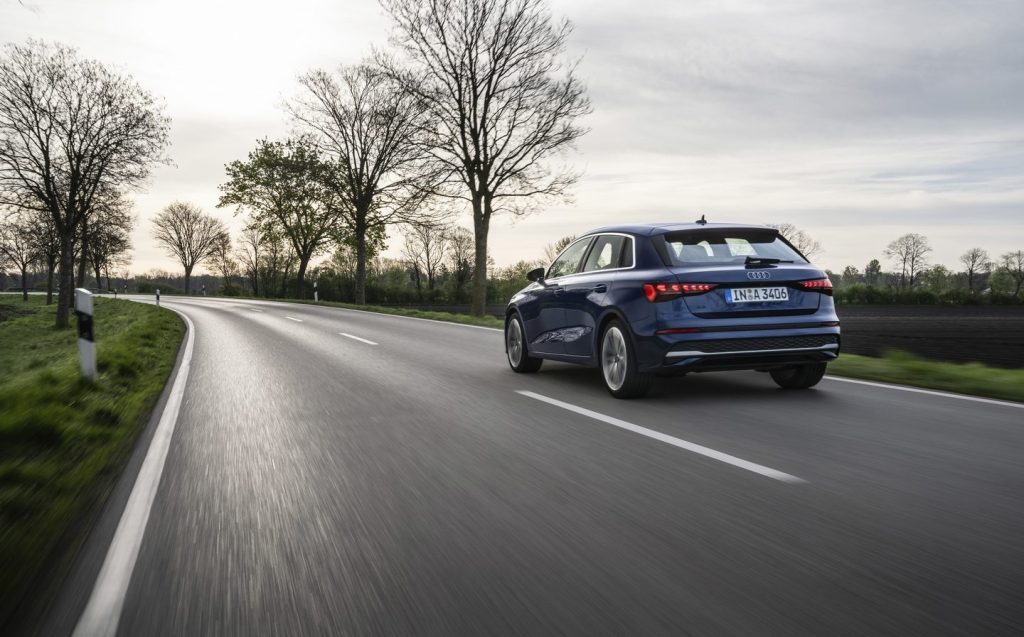
All our test cars were on adaptive dampers as well, likely to be an option in the UK, and even in their most comfort-oriented settings the Black Edition still felt too harsh.
Something that can also be said about the 1.5 TFSI engine, especially if you rev it. Up to about 3,500rpm, it’s fairly quiet and docile, but above that point its loud hollering becomes noticeable in the passenger compartment.
Luckily, the 35 TFSI has just enough about it that you don’t have to flatten the accelerator everywhere just to get about the place, so you can avoid this raucousness from the engine bay in the main.
Whereupon the A3 proves to be a very pleasant thing to amble about in. The quality of the sound-deadening and suppression of wind noise, for example, is not in doubt, because the Audi is remarkably quiet inside at most road speeds.
All of which manages to keep the updated Audi A3 near the top of the pile when it comes to these premium-level hatchbacks. OK, you’ve got to do some clever mental maths to justify why you’d spend more on the Audi than you would on a Volkswagen Golf, Skoda Octavia or Seat Leon, all of which are the same car underneath as the A3.
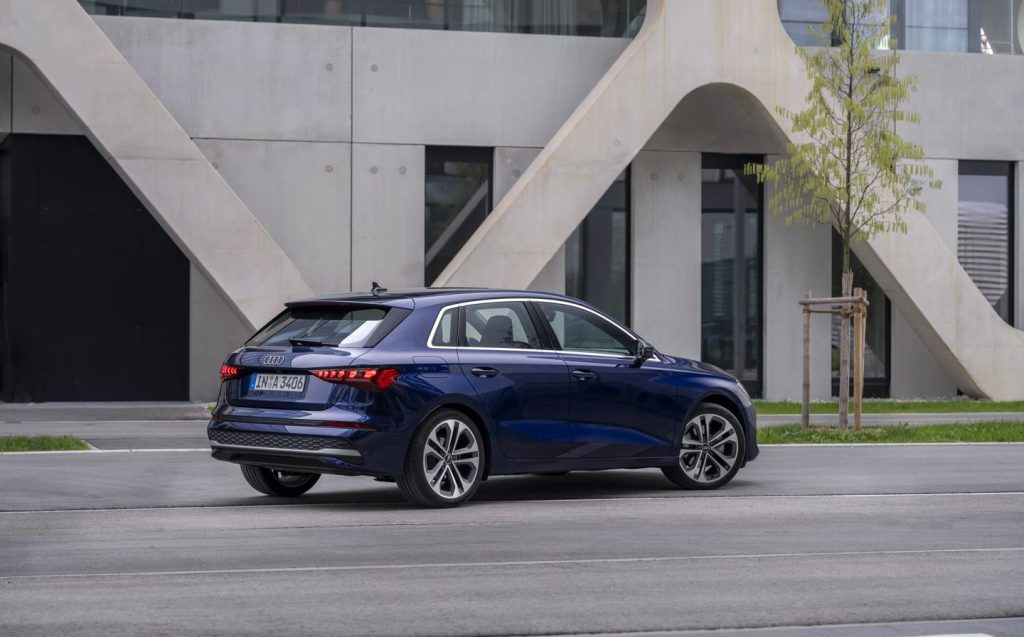
And you could also struggle to justify its £32,000-and-upwards asking price against more mainstream, yet still talented fare such as the Vauxhall Astra, Peugeot 308, Honda Civic and more.
But people do like these prestige hatchbacks. They crave an Audi A3, BMW 1 Series or Mercedes A-Class, more than they do many of the alternatives mentioned above. Audi is canny. It knows this. It was never going to exact sweeping, wholesale changes on a car which was already desirable as it was.
And that’s why, when it comes to this midlife modification of its big-selling model, it clearly realised the outgoing model ain’t broke.
Related articles
- If you liked reading our review of the updated Audi A3, you may want to read our review of a prototype of the updated Audi S3
- Have you seen the interior of the 2024 Audi Q6 e-tron?
- Or consider the also-updated Volkswagen Golf instead
Latest articles
- testing schedule 2
- test schedule
- F1 driver Lando Norris commissions bespoke open-top Land Rover Defender
- Citroën C3 and e-C3 2024 review: Petrol or electric, bow down before the new king of value cars
- Best-selling cars 2024: The UK’s most popular models
- Fourth-generation BMW 1 Series shows its new face with all-petrol line-up for the UK
- Cupra Tavascan 2024 review: Funky electric SUV continues Spanish brand’s EV roll
- Divine intervention? Trump-supporters’ motorhome destroyed after rolling into telegraph pole
- Extended test: 2023 Vauxhall Astra Sports Tourer GS PHEV
























